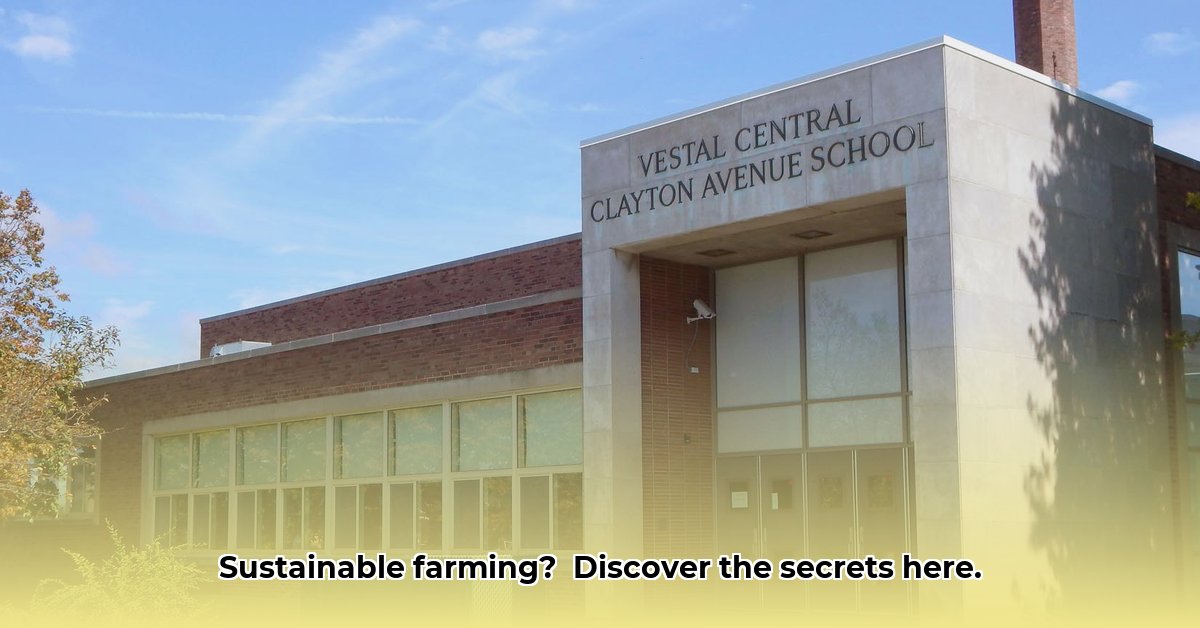
Understanding Tractor Supply's Role in Sustainable Farming in Vestal, NY
Vestal, NY farmers seeking sustainable practices face challenges accessing appropriate resources and information. This article explores the potential role of Tractor Supply Company (TSC), a readily accessible retailer, in assisting these farmers. Based on the available data, a full assessment of TSC's contribution to sustainable agriculture in Vestal is currently limited. Further research is needed to provide a comprehensive analysis. For more information on sustainable farming resources, check out this helpful resource: Pine Straw Guide.
Location and Accessibility: A Convenient Starting Point
TSC's Vestal location, conveniently situated near major roadways (NY-17 and NY-434), offers geographical accessibility for farmers across a wide radius, including Johnson City, Little Meadows, Endwell, and Binghamton. However, convenient access alone doesn't guarantee adequate support for sustainable farming practices. Does this convenient location translate to readily available sustainable products?
Sustainable Farming Supplies: A Need for Further Investigation
The extent to which TSC stocks supplies crucial for environmentally conscious farming remains unclear. This includes organic seeds, eco-friendly fertilizers, water-conservation tools, and other relevant materials. Currently, there is insufficient data to definitively assess the breadth and depth of TSC's sustainable product offerings. Further research is necessary to determine the availability of these materials within their inventory. This lack of information also leaves open the question of accessibility for farmers who don't have personal vehicles, highlighting the need to further investigate public transportation access to the store.
Key Areas for Future Research
To thoroughly evaluate TSC's influence on sustainable farming in Vestal, the following research areas are critical:
- Product Inventory Analysis: A comprehensive examination of TSC's product catalog is needed to identify items suitable for environmentally friendly agriculture and assess their market competitiveness.
- Comparative Pricing: A price comparison of sustainable supplies at TSC versus other local retailers will reveal its cost-effectiveness in supporting sustainable farming practices.
- Supply Chain Transparency: Research should uncover the origin and transportation processes of TSC's products to evaluate their environmental impact throughout the supply chain.
- Community Engagement: Investigating TSC's community partnerships and support for local, sustainable farmers is essential to understanding their role within the broader agricultural ecosystem.
- Farmer Feedback: Direct surveys of Vestal farmers regarding their experiences purchasing sustainable supplies at TSC will provide crucial qualitative insights.
Actionable Steps for Improving Sustainable Agriculture in Vestal
Based on the limited data, several stakeholders can take immediate and future steps to improve sustainable agriculture. One key question is: How can we enhance access to essential resources for environmentally conscious farming?
Farmers/Businesses: Immediately assess TSC's offerings and prices, exploring group purchasing or cooperative initiatives for increased buying power. Long-term goals should include advocating for a wider selection of sustainable products.
Tractor Supply Company: Analyze sales data to identify high-demand sustainable products. Long-term, the company could explore eco-friendly packaging and sourcing more local, sustainable goods.
Local Government: Improve public transit options to TSC to ensure equitable access for all farmers, regardless of transportation. In the long-term, incentives for businesses supporting sustainable agriculture should be considered.
Researchers: Conduct comprehensive research to analyze TSC's current impact and recommend areas for improvement. Long-term, developing models to assess the relationship between supply chain access and sustainable farming adoption in rural areas is crucial.
Conclusion: The Need for Comprehensive Data Analysis
While TSC's convenient location offers initial accessibility, determining its effectiveness in promoting sustainable farming in Vestal necessitates further, in-depth research. Only through comprehensive data collection and analysis can we fully grasp its impact and identify areas for improvement. This approach will enable a more informed and targeted strategy for promoting sustainable agricultural practices within the Vestal community.